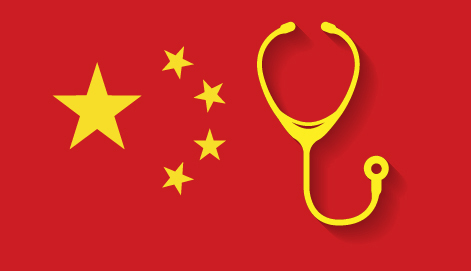What one company’s success reveals about healthcare marketing in China
Medical Pharmaceutical Translations • Jun 15, 2018 12:00:00 AM

The Chinese healthcare market – a market that’s booming, and looming with opportunity. On this blog, I’ve written about like marketing success strategies, and how vital it is for any company in the healthcare field to inspire trust with Chinese consumers (and how to do that). These are general rules, imparted by marketing experts and researchers. But how do they match up against a real success story?
Profiled in several online articles, Australian company Pharmacy 4 Less’s expansion into China shows that while these rules may hold true, other details are equally important.
Founded in Australia in 2007, the company specializes in generic and low-cost pharmaceutical and wellbeing products. They soon became a chain, with more than forty locations, not to mention an online store. In 2016, noticing that they were popular with local Chinese communities, they decided to expand into China itself. Today, Pharmacy 4 Less credits their Chinese online sales as being responsible for about 15% of their total revenue.
You won’t find any Pharmacy 4 Less stores in China. But if you go online, you’ll be able to visit their Chinese website. Opting for an online, rather than physical, presence was smart. In addition to not having to worry about issues like property taxes, local employment laws, and so on, the company was also able to get around having their products approved by the Chinese Board of Health. This process can take years, and of course isn’t guaranteed to succeed. Not only that; merely submitting a pharmaceutical product for approval costs a staggering amount of money – nearly $10,000. Luckily, in 2015, the Chinese government passed a law allowing healthcare products ordered online for personal use to only have to be approved by the healthcare laws in their country of origin.
Pharmacy 4 Less was also smart when it came to online sales because they did it right. When it came time to create their website, instead of cutting corners by translating information and product descriptions with a ‘bot or an unqualified person working for pennies, they found a Chinese company that not only translated the site into Mandarin; their localization team also adapted it to a Chinese audience.
This has not only made the site accessible to millions of users; it’s also meant that advertising and online presence are handled specifically for this market. In China, this is especially critical. After a series of health product scandals, from contaminated baby formula, to false reports of the effectiveness of cancer-fighting drugs, the public (understandably) doesn’t easily trust the healthcare industry. Companies have to establish trust, which in large part consists in a carefully curated, interactive social media presence. For example, a company should be present on top Chinese social networks like Baidu and Tmall.
Additionally, Rania Awad, Pharmacy 4 Less’s e-commerce director, warns, “It’s all about the brand image. If you don’t manage to deliver on your promises, [Chinese consumers] very, very quickly start talking about you [on social media platforms] — and then it’s very hard to repair that image.” Preparedness, an aspect of success in the Chinese market that you don’t often find mentioned by experts and analysts, is one of the things Awad considers most important to succeeding there. Be sure your company can fill orders and get shipments delivered on time.
When it comes to the Chinese market, Pharmacy 4 Less isn’t the only foreign healthcare company success story. A number of other pharma and healthcare organizations are making their mark, as well. Many have similar stories to Pharmacy 4 Less’s, and no wonder: China is the world leader in e-commerce consumers – according to website Marketing to China, about 45% of all healthcare product sales are made online. But other branches of healthcare and pharma have broken into the Chinese market through other routes – although still heavily leaning on the digital.
For example, companies like Sanofi are partnering with Chinese tech companies to create healthcare platforms that also promote their products. These platforms provide patient education and resources, health tracking, and much more. Although this is still a fairly new way to do business in China, it seems to be having promising results.
Healthcare companies have discovered other effective marketing strategies, including hiring Chinese celebrities as brand ambassadors and offering free samples in Chinese stores, as well as marketing to the local Chinese community, who may spread the word about a product to their friends, relatives, or connections in China.
Of course, let’s not forget what has come up time and again when looking at the Chinese healthcare market: establishing trust is essential. Marketing to China reports, “The Chinese buy brands, especially in this sector. They need to develop trust and perceive the products in a positive light, simply exposing your products on e-commerce platforms is not enough. An effective marketing campaign therefore makes or breaks any product launch in China.”
These companies’ success stories aren’t about blindly taking a chance but taking time to learn about Chinese consumer culture and its expectations. They’re about time and commitment (remember the importance of social media), and finding the right people, including translation, localization, marketing, and logistics specialists, to help break into the market and thrive.
#aiatranslations #healthcaremarketing #healthcaremarketingChina #translations
